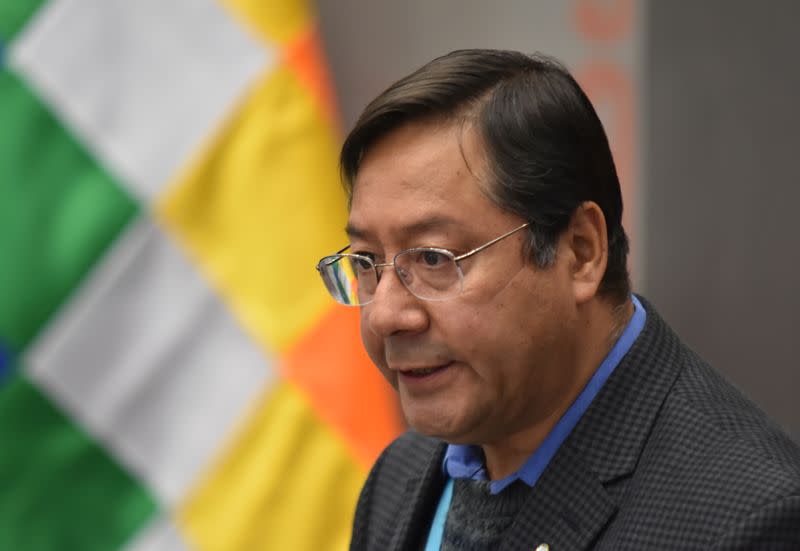Bolivia signs its first major vaccine deal for Russia's Sputnik V
(This Dec. 30 story refiles to fix headline to Sputnik V, not Sputnik 5, with no changes to the text)
By Vladimir Soldatkin and Danny Ramos
MOSCOW/LA PAZ (Reuters) - Russia's sovereign fund, Russia Direct Investment Fund (RDIF), agreed to supply Bolivia with enough of its two-dose Sputnik V coronavirus vaccine to vaccinate 2.6 million people, RDIF said on Wednesday, marking the South American nation's first major vaccine deal.
RDIF said the agreement would make it possible for more than 20% of Bolivia's population to access the vaccine and supply would be facilitated by the Russian fund's international partners in India, China, South Korea and other countries. Bolivia's population is 11.35 million and 20% would be 2.27 million people.
Bolivian President Luis Arce said in a signing ceremony that the contract had guaranteed his country 5.2 million doses, but the Russia fund later clarified that it had committed 2.6 million doses, or 5.2 million injections of the two-shot vaccine.
A fund spokesman confirmed the promised supply would treat 2.6 million people.
Arce said Russia would send 6,000 doses, for 3,000 "treatments", in January to vaccinate its most vulnerable populations, 1.7 million doses by the end of March and the rest "between April and May".
The Bolivia deal is latest sign the Russian vaccine is making inroads in Latin American nations eager for more immunization capacity, including neighbouring Argentina and Venezuela.
On Monday, Reuters reported that Russia's first big international shipment of its coronavirus vaccine last week - 300,000 doses sent to Argentina - consisted only of the first dose of the two-shot vaccine, which is easier to make than the second dose.
Unlike most other COVID-19 vaccines, which are given as two shots of the same product, Sputnik V relies on two doses delivered using different inactive viruses, known as vectors.
President Vladimir Putin has referred to a single-component option as a “light-vaccine”, which he said would provide less protection than the two components, but “will still reach 85%” effectiveness.
Bolivia, which has endured periods of political and social disruption since contested elections in 2019 saw longtime president Evo Morales leave office, an interim government installed and then a fresh government elected led by Arce, has struggled to secure bilateral deals for vaccine supply.
The government has said it also hopes to vaccinate up to 20% of its population in the first quarter of next year through the global COVAX initiative, which is backed by the World Health Organization and seeks to ensure equitable distribution of vaccines.
(Reporting by Vladimir Soldatkin and Danny Ramos, writing by Aislinn Laing and Dave Sherwood; editing by David Evans, Aurora Ellis and Grant McCool)

 Yahoo News
Yahoo News 
